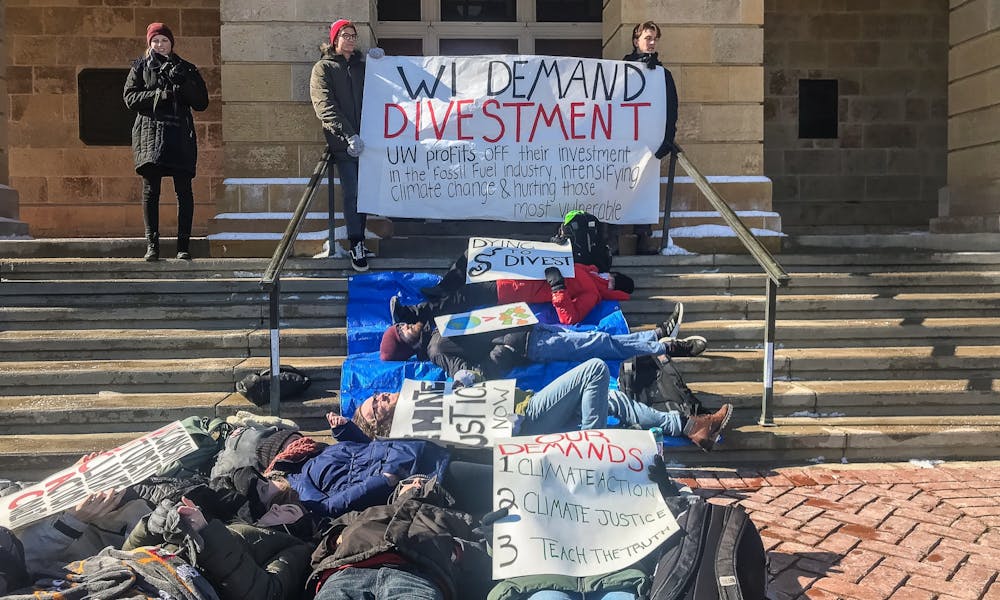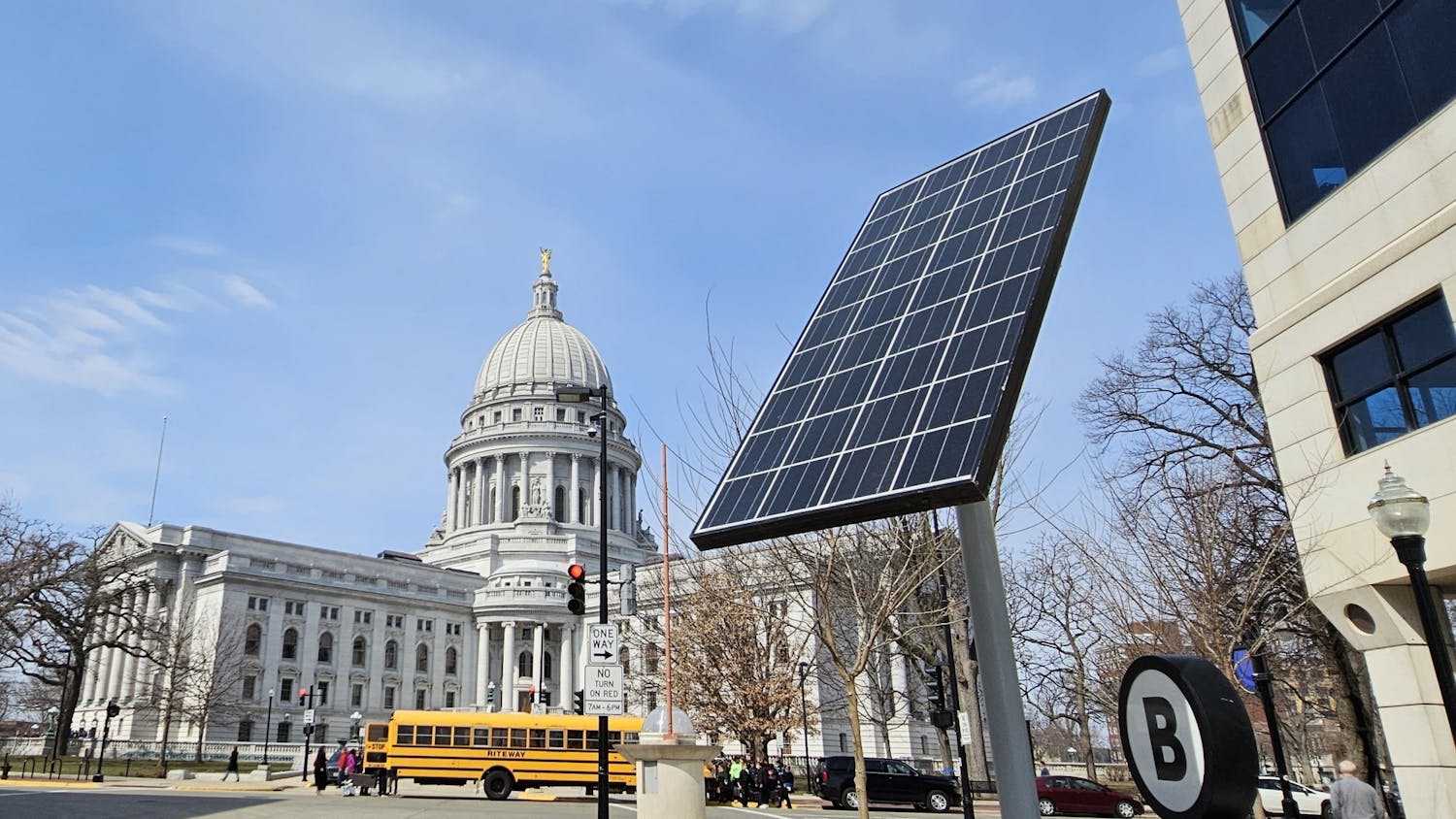With Bascom Hall as their backdrop and braving cold weather conditions, UW-Madison students held a peaceful protest Thursday calling for the university to divest from fossil fuels.
Members from the Wisconsin Student Climate Action Coalition and CLEAN UW-Madison advocacy group organized the “die-in” demonstration, as participants laid on the ground and held up signs to challenge UW-Madison’s investments in the fossil fuel industry and the harm it causes to the environment.
“Dying for disinvestment!” protesters said in unison.
In addition to the outside demonstration, students entered Bascom Hall where they “were strategically placed inside Bascom Hall leading up to [Chancellor Rebecca Blank’s office],” according to one protester.
The protest took place on National Fossil Fuels Divestment Day, as a coalition of over 50 colleges — including many Big 10 schools — across the United States moved against higher education’s ties to fossil fuels, according to WSCAC representative and CLEAN UW-Madison executive board member Marina Minic.
Minic stated that while the university receives monetary benefits from investing in fossil fuel companies, the protests ultimately intend to fight for a more salient goal: combating the harmful effects of fossil fuels to protect the environment.
“It’s not that [UW-Madison] makes money. It’s the fact that they invest in these companies,” Minic said. “It’s pretty unethical that the university is still tied up in this interest.”
While UW-Madison profits from investments in the fossil fuel industry, a different entity does the actual investing.
The Wisconsin Foundation and Alumni Association — which operates separately from UW-Madison — receives donations and makes investments. The WFAA then transfers gift money and investment income to the university, according to the WFAA website.
The added funds provide UW-Madison the means to finance scholarship programs, building and research projects and specific initiatives by individual schools.
While UW-Madison alumni and donors run the WFAA, UW-Madison itself does not conduct business or invest in corporations such as those in the fossil fuels industry.
“The Wisconsin Foundation and Alumni Association [WFAA] is an independent, private 501(c)(3) that operates separately from UW-Madison,” WFAA said in a released statement. “WFAA is governed by a board of directors, all of whom are alumni and donors themselves. The WFAA board establishes and reviews our main operating policies, including those governing investment, and will do so again at our meeting in March.”
Still, the student protesters accentuated UW-Madison's complicit role in accepting money that originates from fossil fuel companies.
Minic said that with UW-Madison’s leadership within the higher education community and Big Ten Conference, the university should set a precedent by decreasing the presence of fossil fuel money from college campuses.
“It’s disappointing that [the university] hasn’t made any steps toward clean or renewable energy,” Minic said. “We as students know that if the university took steps to divest from fossil fuels, other Big Ten, UW System and schools across the country would follow.”
According to Minic, the UW-Madison Office of Sustainability plans to launch an advisory committee on climate-related issues like fossil fuels. She said groups like WSCAC and CLEAN UW-Madison will lobby for students to assume roles on the committee to represent the voices of young people.
Minic said WSCAC will host a public forum next Tuesday for students to talk about environment-related issues.
[Editor’s Note: 2/16/2020, 9:00 p.m.] An earlier version of this story stated UW allegedly invests in fossil fuels. While UW-Madison itself does not invest in such corporations, it does profit off the investments into fossil fuels. The article was updated based on additional information and editorialized phrasing has since been changed.






